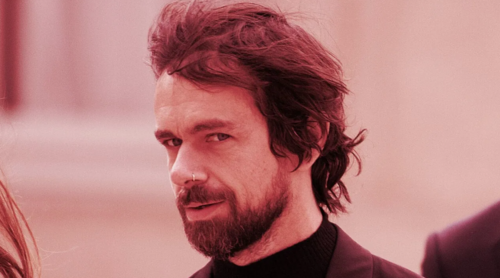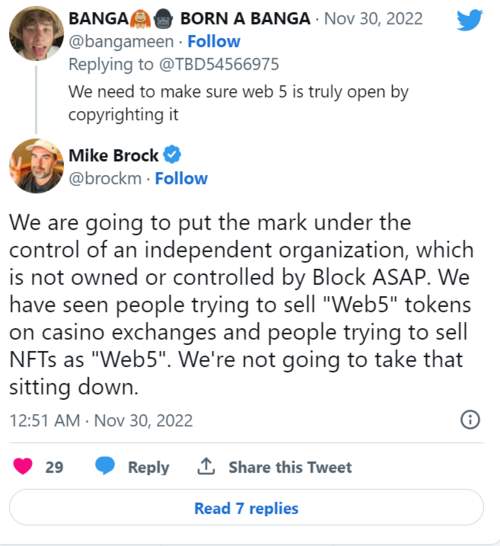

Jack Dorsey. Image: Shutterstock
Roughly six hours after TBD, the Bitcoin-centric subsidiary of Jack Dorsey’s Block, announced its intention to trademark the “Web5” name, the controversial plan was scrapped, with TBD saying the voice of the community was heard and it was "responding to their concerns.”
TBD took to Twitter on Tuesday to announce their intention to seek protection for Web5, in a move designed to avoid confusion over the term’s meaning and “and ensure that the term is used as intended.”
Web5—a purported “extra decentralized web platform” that would enable users’ direct control over identity and personal data—was announced in June 2022, with Dorsey saying at the time that “this will likely be our most important contribution to the internet.”
Mike Brock, who leads the TBD division inside Block (formerly Square), tells Decrypt's Dan Roberts and Sander Lutz in our Decrypting Mainnet series at Mainnet 2022 about what TBD is up to and what it's building for developers, why blockchain tech must be open-source, why payments is still the "killer app" for blockchain, why big companies will embrace blockchain "very very quickly" once the tech "reaches the point of maturity," and how Jack Dorsey influenced the company's crypto views.
The idea is to build the next iteration of the internet that would combine the legacy Web2 model and the novel conception of Web3, enabling developers to write Decentralized Web Apps (DWAs) using Decentralized Identifiers (DIDs) running on the Bitcoin blockchain.
The decision to trademark the term “Web5,” according to TBD, while not intended “to prevent others from using Web5,” came in response to the desire “to establish an initial way to defend its principles.”
“We are working on ways to enable commercial and non-commercial uses of “Web5“ as long as participants respect the meaning of the term and uphold its main attributes,” TBD said in a statement.
The move to copyright a term that reflected the ethos of decentralization was met with a lukewarm response from the community. Many commentators noted this would contradict the very idea of a decentralized internet.
“Nothing says 'free and decentralized' like one organization getting to choose who is 'free and decentralized,'" said one user.
“Welcome to the real decentralized web. you will need our permission in order to be able to use the term decentralized web… can't tell truth from satire anymore,” added another.
In an attempt to justify the move, the TBD project lead Mike Brock said, “we have seen people trying to sell 'Web5' tokens on casino exchanges and people trying to sell NFTs as 'Web5,'" adding that the company was not going “to take that sitting down.”

According to Brock, TBD was going to place the trademark for Web5 “under the control of an independent organization, which is not owned or controlled by Block.”
“Web5 has zero direct commercial benefit to Block. Everything we are doing is 100% open source, and our goal is to create an independent community organization and/or donate protocols to standards bodies. But we're not going to let scammers operate under the color of Web5,” added Brock.
Despite TBD seemingly being committed to its initial plan, the resolution to the matter came quicker than many probably expected.
In their next tweet late on Tuesday night, TBD said, “we are suspending and rescinding our previously announced plan until further notice.”
“While our concerns here have not abated, we have heard loud voices in the community who are concerned about the potential for abuse of trademark law in ways that would undermine the mission of decentralization,” said the tweet.
TBD added that its goal is “to catalyze the community and have Web5 exist as its own thing, separate from TBD and Block. This move now, even given the aforementioned concerns, undermines people’s trust in that mission.”
